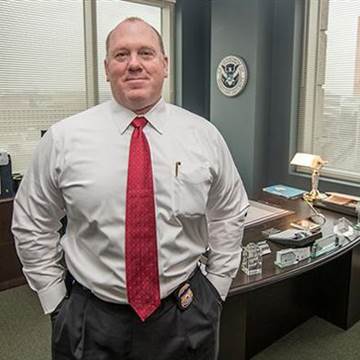
On November 14, the administration announced President Trump's intention to nominate Tom Homan, the acting director of Immigration and Customs Enforcement (ICE) to permanently head the organization.
No sooner had the announcement been made than the long knives were out. Homan was depicted as an "Obama holdover" and, in some way not explained, one of the crafters of the many ill-advised, indeed outrageous, anti-enforcement policies of that administration. Not so. He spent his professional life as an up-from-the-ranks career immigration officer.
It is only perseverance, a recognition of his hard work and skills, and a healthy dose of serendipity based on timing and the election of Trump — believed by all the pols and pundits to be a long shot — that landed Homan in the right place at the right time to even be around long enough to head the agency on a temporary basis.
And he is the right person at the right time for this important job. Unlike most nominees for high posts, he has come up through the ranks. This gives him a huge advantage in an administration that has focused on restoring the rule of law to our out-of-control immigration system. When agents speak to Homan about the job, he knows what they are talking about in ways that political appointees never will, even after substantial coaching.
Those who cast Homan in the light of an Obama holdover don't grasp that his career experience has spanned many other administrations as well. While the critics may not have cared for many, perhaps most, of the policies enacted during the Obama administration that were designed to obstruct immigration enforcement (I certainly didn't), it would be egregiously unfair to lay them at Homan's doorstep. Those policies emanated from the White House, not Homan.
In my many decades both inside the immigration system and as an outside observer and commenter, this is the first time I have seen a seasoned professional nominated for the top job (with the exception of the Border Patrol). It's long overdue. The job requires command of excruciatingly difficult nuances and details. It takes an experienced veteran, not a political dilettante, to see policies and processes brought to reality in any meaningful way.
There have been allegations that even with the change of administrations, there have been some incidents that reflect a culture still reminiscent of the Obama years — agents told not to wear their bulletproof vests, or directed to provide advance warning of field operations. Those need to be investigated and if there is a shred of truth to them, the supervisors responsible should be held to task. Homan can make clear his support for this endeavor by issuing an all-hands statement that any such improprieties will be dealt with swiftly and severely, and establishing a mechanism for the reporting of incidents that put agents and operations at risk. He might also consider calling the relevant field office directors to headquarters for a woodshedding.
As for the rank-and-file agents, they need to stop and consider before participating in any endeavor to sink Homan's candidacy: This may be their one and only opportunity to serve under a fellow officer who knows intimately and personally what it's like to work the streets. They should embrace the chance.
